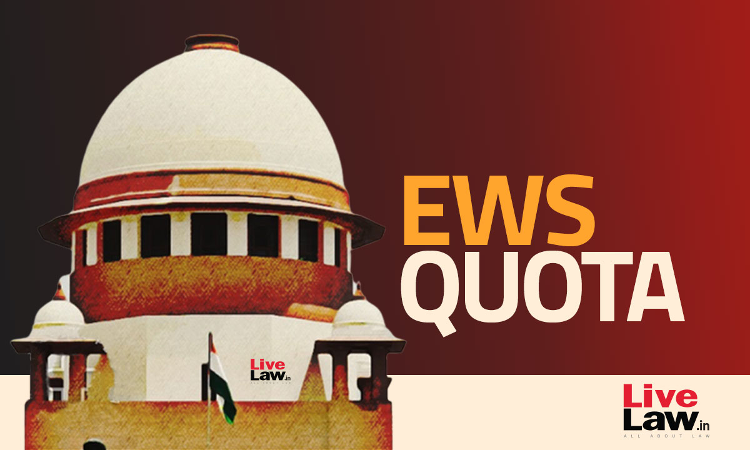EWS Reservation- Supreme Court Constitution Bench Hearing DAY 2- LIVE UPDATES
LIVELAW NEWS NETWORK
14 Sept 2022 10:33 AM IST

Live Updates
- 14 Sept 2022 11:36 AM IST
Kumar: [Reads Article 15(3)] it does not say reservations or quota. It says "any special provision"- open schools, colleges, industries, train women, it's so wide, because the gap in men and women is so wide that nothing shall stop state from bringing women at level playing field
- 14 Sept 2022 11:35 AM IST
Kumar: Having done this, there is a deep, wide gap between these sections- sections vertically divided in the name of caste, sex. What do you do for that? Here, I borrow the concept in Indira Sawhney given in dissenting opinion- we have to breach the gap between these sections.
Next Story


